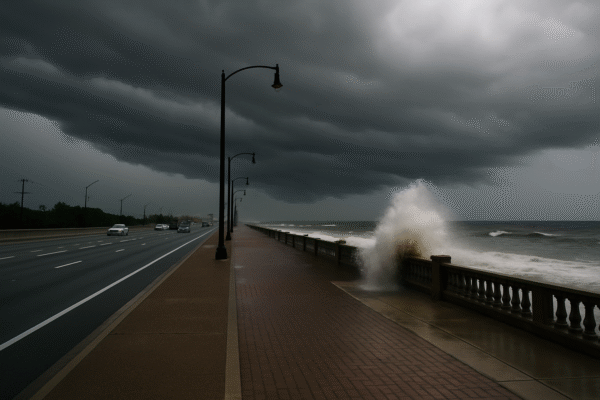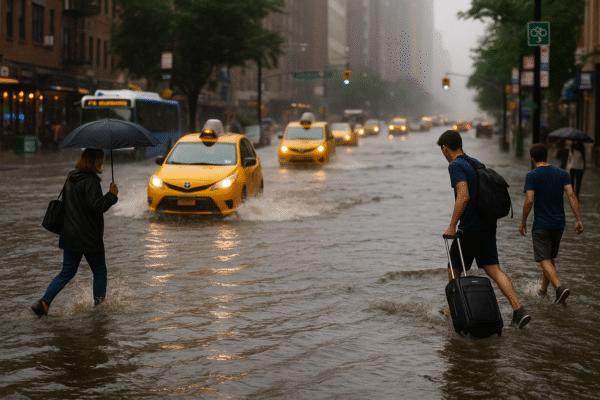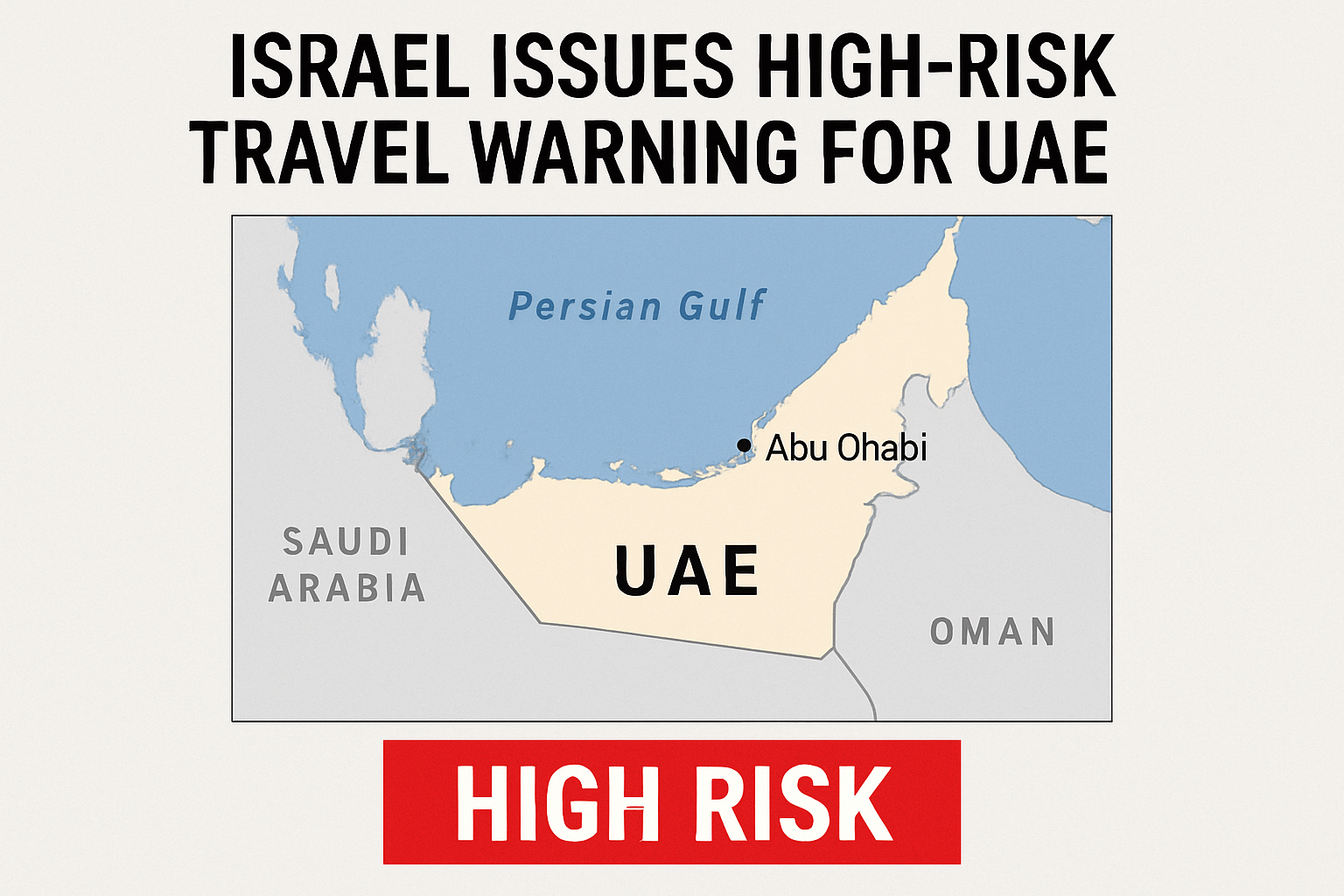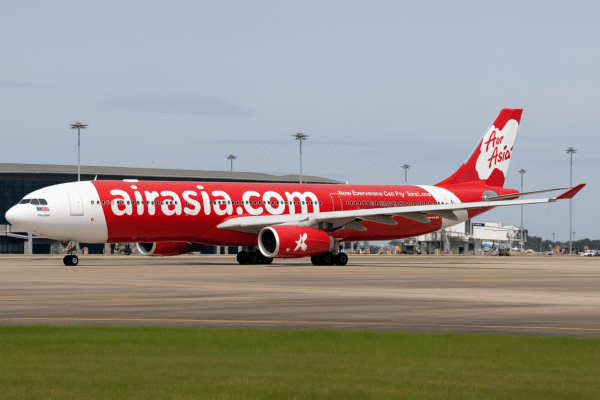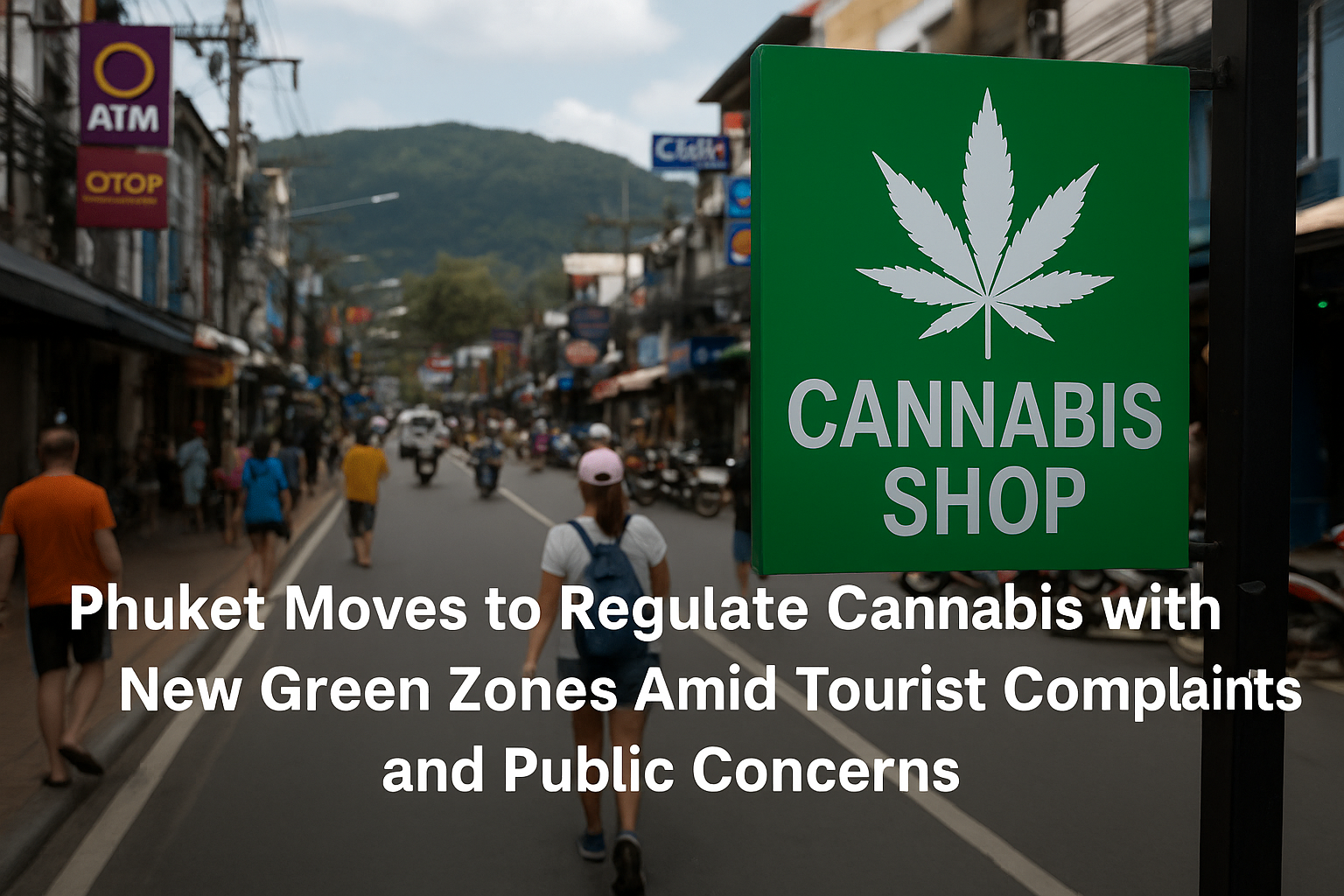Phuket, Thailand – June 19, 2025
In response to mounting complaints from tourists and local residents, Phuket officials have announced a proposal to zone cannabis sales and consumption on the island. This major policy shift aims to curb the widespread and unregulated spread of cannabis shops that have appeared across the province since Thailand decriminalised marijuana in 2022.
The move, led by Phuket Governor Sophon Suwannarat, is intended to restore Phuket’s image as a family-friendly destination and better align with community standards amid growing concern over the island’s evolving identity.
Tourism Image at Stake: Complaints Spark Action
Speaking at the first meeting of the newly elected Phuket City Council on June 18, Governor Sophon confirmed that formal steps are being taken to request cannabis zoning authority from the central government. His remarks come on the heels of repeated complaints from both locals and international tourists regarding the strong smell of cannabis in public areas and its proximity to schools, residential zones, and popular tourist landmarks.
“We’ve received a number of complaints about the smell and its impact on the tourism image,” Governor Sophon stated. “This is about safeguarding both our communities and our tourism appeal.”
According to officials, the proposal requests the Ministry of Public Health to issue a national directive or delegate zoning control to local governments—similar to how entertainment venues like bars and nightclubs are regulated.
Proposal for Cannabis Green Zones: What’s Being Suggested?
The idea is to introduce “green zones”—designated areas where cannabis can be sold and consumed legally and safely. These areas would be strictly separated from:
- Schools and universities
- Religious institutions
- Family attractions
- Residential communities
- Heavily trafficked tourism zones
Such zoning would help address concerns about second-hand cannabis smoke, the normalisation of marijuana use in public spaces, and the potential influence on youth behavior. It would also allow authorities to maintain better health and safety standards while still preserving Thailand’s newly emerging cannabis industry.
Governor Sophon added that further meetings are planned with senators and representatives from the central government to escalate the proposal to the national level.
Cannabis in Thailand: From Legalisation to Regulation
Thailand made international headlines in June 2022 when it became the first Southeast Asian country to decriminalise cannabis. The move, initially celebrated as progressive and economically strategic, was spearheaded by Anutin Charnvirakul, now the Deputy Prime Minister and Minister of Interior. At the time, Anutin also held the position of Minister of Public Health and was one of the most vocal advocates of the cannabis policy.
The goal was to support medical cannabis, promote health tourism, and generate economic opportunities through cultivation and wellness businesses. However, the lack of clear and consistent regulation opened the door for a surge in recreational use, particularly in tourist-heavy areas like Phuket, Bangkok, and Pattaya.
The result? Thousands of unlicensed or loosely monitored cannabis outlets appeared virtually overnight.
Public Sentiment Shifts as Green Rush Faces Backlash
While cannabis decriminalisation initially received broad support, sentiment has begun to shift. In Phuket—one of Thailand’s most important tourism economies—the backlash has been particularly sharp. Residents have voiced concerns about:
- Cannabis shops opening near schools and playgrounds
- The strong smell of marijuana in hotel and beach zones
- A rise in loitering or disruptive behavior near weed stores
- Inadequate law enforcement or licensing oversight
Tourists from countries with stricter drug laws have also expressed unease about the open consumption of cannabis in areas previously associated with family tourism or luxury retreats.
Governor Sophon and municipal leaders now believe tighter regulation is essential to protect Phuket’s brand as a premium, safe, and family-oriented destination.
Industry Reaction: A Mixed Bag
Reactions from cannabis business owners have been mixed. While some operators support the idea of zoning to ensure legitimacy and long-term industry sustainability, others fear that over-regulation could cripple a sector that has barely found its footing.
“We understand the need for balance,” said one dispensary owner in Patong. “But if the rules are too restrictive, you’ll push the industry underground again.”
The Thai Chamber of Commerce and Tourism Authority of Thailand (TAT) have yet to formally comment on the zoning proposal, though officials from both organisations have previously stressed the importance of responsible tourism policies and the need to protect Thailand’s international image.
What’s Next for Tourists Visiting Phuket?
For travelers planning trips to Phuket, there are no immediate changes to cannabis laws as of June 2025. Cannabis remains decriminalised and can still be purchased from licensed dispensaries, although consumption in public spaces is technically discouraged under existing health regulations.
However, travelers should stay informed. If the zoning proposal is approved by the Ministry of Public Health, local governments may begin implementing area-specific restrictions by late 2025 or early 2026.
This could include:
- Restricting cannabis retail to specific neighborhoods
- Prohibiting use within a certain distance of schools or religious sites
- Limiting operating hours of cannabis shops
Conclusion: Phuket’s Cannabis Crossroads
Phuket stands at a critical juncture—balancing the freedom and economic potential of cannabis legalisation with the cultural, environmental, and brand-conscious realities of being one of Asia’s most important international destinations.
As complaints rise and global scrutiny intensifies, the push for cannabis zoning could mark a significant pivot in Thailand’s post-legalisation strategy. Whether green zones will protect tourism without stifling innovation remains to be seen.
For now, one thing is certain: Phuket wants its reputation to stay as high as its visitors—and zoning may be the answer.
For more travel news like this, keep reading Global Travel Wire




